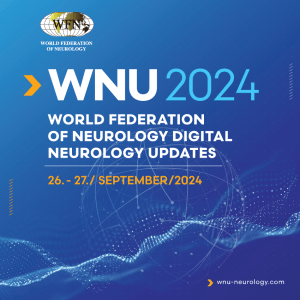
NeuroPACES is an intensive one day clinical teaching course organised by the Walton Centre for Neurology and Neurosurgery in Liverpool which focuses on the neurological station of the MRCP Part 2 Clinical Examination (more commonly known as PACES -Practical Assessment of Clinical Examination Skills). PACES is an essential qualification for all physicians and a pre-requisite for completion of core medical training (CMT). As a junior doctor I felt that the neurology station was the most difficult to prepare for.This was through a combination of limited experience, as many neurological cases encountered in PACES tend to be managed in specialist neurologist centres that junior doctors have limited access to, and eliciting and interpreting neurological signs can be difficult without having experienced these cases in real life.
Several PACES teaching courses exist, organised by both hospital trusts and commercial companies, designed to prepare candidates for all aspects of the examination. I had attended one of these courses in London but felt that the course did not provide adequate breadth of neurological presentations encountered in the examination or dedicate enough time and supervision for me to feel confident at neuro- logical examination, presentations and diseases. This was my motivation to attend NeuroPACES.
There were approximately 30 delegates who attended the NeuroPACES course.Most were UK based junior medical trainees preparing for the PACES examination although a few delegates had travelled from abroad especially to attend the course. Some of the delegates had failed the exam previously whilst others were preparing for their first attempt at the PACES examination.
The morning began with a lecture by a professor in neurology and neurology registrar explaining how to approach the neurology station in PACES and demonstration of the neurological examination. This ensured that every candidate can perform a neurological examination as expected by the neurologist.All participants were also provided with a booklet reviewing the examination and neurology cases with tips for the real exam and areas to make notes from the course.
Candidates were then divided into groups of 4-6 and rotated through 24 neurological cases with time for examination, presentation, teaching and feedback. The whole day was undertaken in a mock exam format,just like the MRCP PACES stations, with 6 minutes to examine and 4 minutes for questions; but this is then followed by 5 minutes per case for the training neurologist to demonstrate missed signs, provide feedback and explain how to improve. Each participant got to practice every examination, elicit important clinical signs and present their findings as well as have their questions addressed. Neurological presentations included multiple sclerosis and fascioscapulo- humeral dystrophy in the limb examination, myotonic dystrophy and retinitis pigmentosa in cranial nerve examination and parkinson’s plus syndromes and choreoathetosis in the movement disorder section.
As a 1st year CMT trainee preparing for the PACES examination for the first time the NeuroPACES course was definitely worth attending. The variety of the cases was exceptional as some cases, such as progressive external ophthalmoplegia and Brown-Sequard syndrome, I had only read about in text books and never encountered in clinical practice. All of the faculty members were knowledgeable, friendly and experienced in the PACES examination. I practiced all of the examinations, elicited all of the signs and presented my findings as in the real examination.
I passed my PACES examination first time and achieved full marks in the neurology station, which was a complex cranial nerves examination, thanks to this course. I would recommend NeuroPACES to all medical trainees preparing for their PACES examination. Prospective candidates should book the course and study leave early and review the neurology cases from a PACES textbook prior to attending to ensure that they get maximum benefit from the course.
More information about the course is at www.liv.ac.uk

